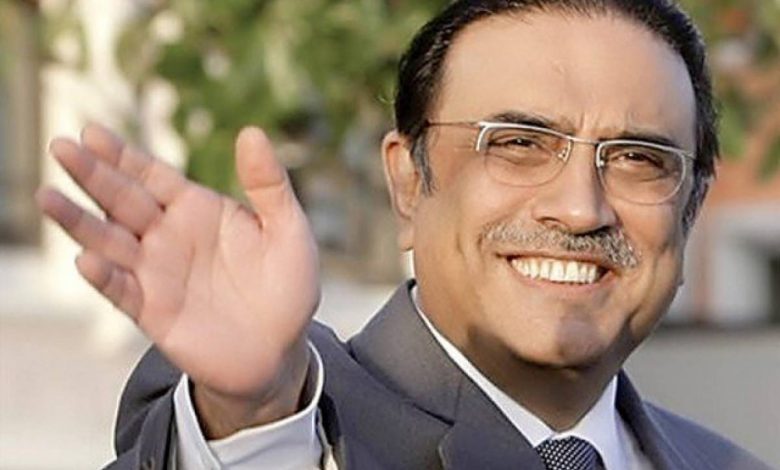
Studies, like a study by the Harvard Business School, show that since 2008. Businesses have declined, the GDP has fallen, and unemployment has increased. Pakistan’s economy is going downhill, and it’s due to Corruption. Reading about the reformist Asif Zardari. Who ran for President in May 2019, was interesting. Because of all the things he’s done to combat Corruption.
Read More Article.
When did Corruption start in Pakistan?
Pakistan’s corruption problem has been around for years. Still, it exploded in the public eye after former Prime Minister and President. Asif Ali Zardari were implicate in a multi-billion dollar scam.
The government of Pakistan is one giant mess. There is rampant Corruption at all levels of society and the government. Funded projects disappear into shadowy bank accounts. And criminal groups make billions off of the country’s natural resources. This problem has been growing for decades, but it took off under Zardari and his wife, Benazir Bhutto.
Zardari was prime minister from 1988 to 1993, during which time he proved to be corrupt. He allowed shady business people to take advantage of their connections and amassed. An enormous fortune himself. After leaving office, he became head of the PPP (Pakistan Peoples Party). which led to even more Corruption. His wife, Benazir, also became embroiled. In many scandals related to her personal wealth and land concessions.
In 2008, Zardari was charge with money laundering and bribery in connection. With a scandal involving a Swiss construction company called Siemens AG. The case resulted in his being banne from running for office again – though. He was acquitte in late 2013.
Since then, there have been many investigations into Zardari’s dealings. Most recently by the Supreme Court. These investigations have shed a lot of light on how deep. The country’s Corruption goes and how many people.
What was the DNA of Corruption?
Due to years of Corruption, Pakistan is one of the most corrupt countries in the world. Corrupt officials can amass vast fortunes. While their citizens have seen little in return for their hard-earned money.
The roots of Pakistani Corruption go back to colonial times. When the British authorities handed lucrative government contracts. And land concessions to their friends. With little competition and no checks and balances. These deals soon became a source of wealth for a few at the expense of the many.
After independence in 1947, politics became entangled with. Business interests, fueling even more Corruption. The country’s weak infrastructure allowed vested interests. To loot public coffers through kickbacks and bribes.
As autocrat Zulfiqar Ali Bhutto maintained tight control over. The levers of power in Pakistan during the 1970s and 1980s. Corruption flourished even further. Officials plundered national resources at will, succumbing. To surging demands for luxury items such as cars and homes.
During Zardari’s time as President (1999- 2008). Pakistan made modest improvements in fighting Corruption. But still ranked amongst the most corrupt countries in the world. Despite this record, Zardari was popular with voters because. He was seens as somebody who could keep things running – despite all the graft going on around him!
Where did it first appear on the map of Pakistan?
Asif Zardari, former President of Pakistan and now in jail on corruption charges. Is one of the more prominent examples of how Corruption found its way into the country. In 2007, he was accuse of accepting a $2 million bribe from. An official in the Swiss government to promote trade between the two countries. He has since been convicte in absentia and faces up to twelve years in prison if he were ever to be apprehende.
Zardari’s family has a long history of political power in Pakistan. His father was President from 1993 until 1999. And his brother is currently the Prime Minister. Zardari served as President from 2008 until 2013. Before being arreste on corruption charges. The origins of this form of Corruption can be trace back to 1971. When Pakistan became an independent country after a long period of British rule. At that time, there was little infrastructure or economy to speak of. And businesses were subject to bribery and extortion by government officials. This problem only grew over time as government resources became scarce. And Corruption became more commonplace.
Corruption has severe implications for the individual victims. Who are force to pay bribes and the economy as a whole. It creates an environment where business is complex and competitive. Which limits growth and job opportunities for everyone involved. Additionally, it increases the cost of goods and services as taxpayer money. Is diverte from vital infrastructure projects or stolen outright by corrupt government officials.
How has Corruption entrenched itself into Pakistani Politics?
There is no doubt that Corruption has entrenched its way into Pakistani politics. The pervasive influence of the corrupt elite, their willingness to use all means. Necessary to stay in power, and the general lack of transparency. And accountability have contributed to the current state of affairs.
Corruption began to take root in Pakistani politics during the 1980s. When military dictators ruled the country with an iron fist. Now, much of the country’s economy depended on government contracts and patronage. As a result, governments were beholden to powerful interests, and Corruption became rampant.
Things got even worse during General Zia ul-Haq’s rule (1979-1988). He was a military dictator who ruled by decree and was corrupt. He awarded lucrative government contracts to his family and friends. Funnelled money from the national budget into private pockets. And engaged in other forms of financial misconduct.
Asif Zardari: How Corruption Found Its Way Into Pakistan
Negotiating with Corruption in Pakistani – an overview
Pakistan is one of the most corrupt countries in the world. With endemic bribery and Corruption permeating all aspects of life. Corruption has become so rampant in Pakistan. That it is now institutionalized, with many politicians, bureaucrats. And businesspeople taking advantage of the system to their advantage.
There are several reasons why Corruption has become entrenched in Pakistani society. One reason is that Corruption is a way of life for many people in Pakistan. Bribery and extortion are standard practices across all walks of life. And people take advantage of what they know about the system to advance their interests.
Another reason for pervasive Corruption in Pakistani society is the country’s weak economy. Severe economic hardship has led to high unemployment, inflation, and poverty. Which have created fertile grounds for graft and bribery. For example, businesses bribe government officials. To get essential paperwork processed or contracts awarded knowing. That these officials will want to ensure their personal finances are also taken care of.
Despite these challenges, there are also ways. That individuals can fight against Corruption in Pakistan. One key strategy is to create public awareness of the problem. And demand change from those responsible for fostering it. Individuals also need to be careful about how much information they give out. About themselves or their affairs because anyone can be a target for blackmail. Or extortion if they fall out of favour. With influential individuals or groups in Pakistani society.
. . .
Asif Zardari: How Corruption Found Its Way Into Pakistan
As the Benazir Bhutto murder trial enters its fourth year. It has become clear that Corruption played a significant role in her assassination. A recent report by Access Initiative found that graft. And bribery cost Pakistan $58 billion between 20% of its GDP. The story of how Corruption found. Its way into Pakistan is intricate, full of scandal after scandal.
Pakistan’s ruling party, the PPP, was founde in 1961 by Zulfikar Ali Bhutto. One of the country’s most famous (and corrupt) prime ministers. For more than a decade before his death in 1978. Bhutto was implicate in a web of financial and political scandals. Asif Ali Zardari, Zulfikar Ali Bhutto’s son. And Benazir Bhutto’s husband, became President of the PPP in 1993. Under his leadership, the party continued to be marrige by corruption scandals. In 2007, Transparency International ranked Pakistan. As one of the “most corrupt countries” on earth.
The Gwadar Port project is the best testament. To how pervasive Corruption has become throughout Pakistani society. The port was develop as a joint venture between China and Pakistan. But fell into disrepair due to rampant Corruption and mismanagement. But, construction had begun on the port before Benazir Bhutto’s assassination.




